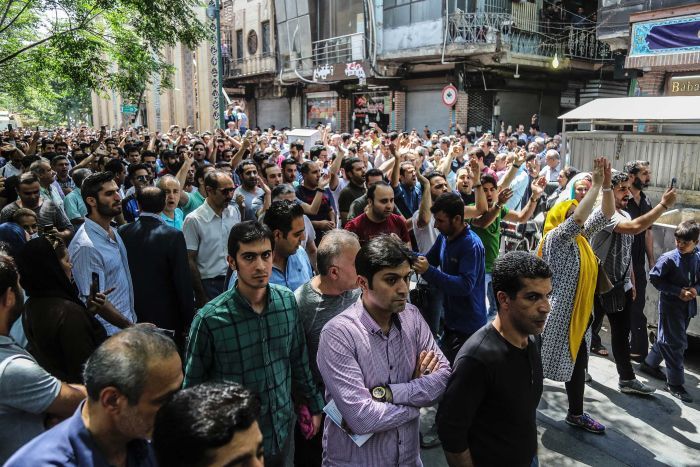Australia/Israel Review
Deconstruction Zone: Tweets mask real US leverage on Iran
Aug 1, 2018 | Rich Lowry

It’s Teheran’s turn for the “fire and fury” treatment.
In response to Iranian President Hassan Rouhani’s telling US President Donald Trump not to “play with the lion’s tail” because “war with Iran is the mother of all wars,” the President fired back in an emphatically all-caps tweet warning of “CONSEQUENCES THE LIKES OF WHICH FEW THROUGHOUT HISTORY HAVE EVER SUFFERED BEFORE.”
The last time Trump theatrically threatened a regime with destruction, he quickly turned around and had warm talks with North Korean dictator Kim Jong-un in Singapore. Since then, Trump’s Twitter account has lost some of its deterrent force.
But the exchange of words has focused attention on a growing confrontation with Iran, in which the United States has the upper hand.
When Trump pulled out of the Iran deal earlier this year, there were warnings that it would split the Western alliance, prompt an Iranian nuclear breakout, or leave the US isolated and unable to effectively sanction Iran on its own.
Instead, Iran is in the middle of an economic crisis, although the US has not truly ratcheted up the pressure. In less than a year, the Iranian currency, the Rial, has lost half its value. There have been broad-based demonstrations around the country. Major multinational companies – including General Electric, Siemens and A.P. Moller-Maersk – are pulling back from doing business in Iran.
Iran wasn’t in a position to take economic advantage of the windfall of the nuclear deal. It was most interested in funding terrorism and foreign adventurism. Even if it weren’t prioritising terror funding, its economy would be hopelessly corrupt. Then-US Secretary of State John Kerry urged Europeans to do business in Iran, but the terror state obviously doesn’t present a stable business climate. (The governor of the Central Bank of Iran has been sanctioned by the US Treasury for helping the Revolutionary Guards funnel funds to Hezbollah.)
US sanctions that were lifted as part of the Iran deal begin to snap back on August 6, and the US Administration has a goal of getting Iranian oil exports to zero by November. Although this isn’t realistic, and the Administration will grant exceptions to some allies, Iran could lose one million barrels a day in exports (in May, its exports had hit a new record of 2.7 million barrels a day).
This is nothing less than financial warfare against the regime, aimed at denying it hard currency to fund its foreign operations, with the ultimate goal of destabilising the regime. The Administration denies that it has a policy of regime change, but US Secretary of State Mike Pompeo’s demands for a new deal are so sweeping and fundamental that Teheran couldn’t comply short of a radical reorientation toward becoming a normal state.
The economic campaign is coupled with a strategy of backing US allies – Israel, Saudi Arabia, and the United Arab Emirates – to the hilt in their efforts to resist Iranian aggression in Syria and Yemen.
This is all to the good. The problem is that Trump’s desire to get out of Syria entirely is at cross-purposes with pressuring Iran on all fronts, and the hope that a cynical and self-interested Russia will significantly aid the US vis-à-vis Iran is surely misbegotten.
With proxy forces across the region, Iran has cards to play, and the regime is inherently dangerous. At a time when it should be doing everything to curry favour with the Europeans, one of its diplomats was arrested a few weeks ago in Germany for plotting a terror attack on an Iranian opposition group in France.
But Iran lacks several advantages enjoyed by North Korea. It doesn’t have an overwhelming, powerful patron like China. It unites Israel and the Arab states, and none of the US’s regional allies are pressuring it to negotiate with Teheran the way South Korea pushed the US to talk with Pyongyang. Finally, Iran doesn’t yet have nuclear weapons.
This gives the Administration leverage. The mullahs shouldn’t fear presidential tweets as much as the economic clampdown to come.
Rich Lowry is the editor of National Review. © National Review (www.nationalreview.com), reprinted by permission, all rights reserved.
Tags: Iran






